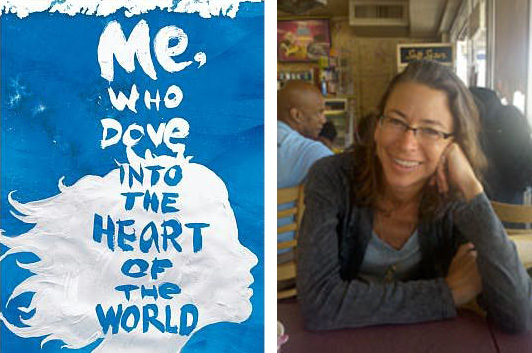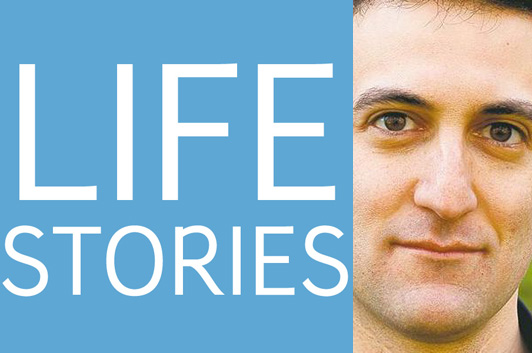Lisa Dillman: Finding Me‘s Voice

photo via Words Without Borders
Translating a first-person narrator into English from another language can be a challenge under any circumstances, but when that narrator has a non-standard emotional and mental profile like Karen, the autistic protagonist of Sabina Berman’s Me, Who Dove into the Heart of the World, the work gets harder. Lisa Dillman rises to the occasion, though—and, in this guest essay, reminds us that when we think, before we even open a novel, that we know what it and its characters are going to be about, that’s when we’re most likely to be caught off guard by the author’s real plans.
When I first read Me, Who Dove Into The Heart of The World, I became obsessed with the idea of translating it, and a year later I was thrilled to get the opportunity to do so. The novel tells the story of Karen, a highly-functioning-autistic-cum-bluefin-tuna-industry-magnate. She starts the novel as a mute, feral, wild-child eating wet sand in Mazatlán, Mexico and ends up in a Tokyo penthouse surrounded by multiple laptops. In case it’s not immediately apparent, this is a highly unusual novel. And one I fell in love with for multiple reasons.
To begin with, there is Karen’s unique voice. She speaks—and writes—in clipped sentences devoid of “standard human” frippery. Karen is a literalist. When out on a fishing boat with an Italian sailor who claims God gave humans license to kill, she wants to see the license. She lacks inflection and eschews metaphor, euphemism and fantasy, all of which she classifies as lies used by “standard humans” in the name of deceit and self-delusion. Euphemism, for instance, is employed in order to disguise a terrible thing as a good one. Providing a run-down on her classes at college, where she studies animal husbandry, Karen gives us one of numerous examples of human idiocy, informing us that “the methods course on killing… animal species was called Meat Industry.” Throughout the novel, readers get the chance to experience Karen’s forthright, direct way of thinking, seeing and feeling the world, and this proves an excellent way to reconceive of our own “standard” modes of action and interaction through fresh eyes.
17 August 2012 | in translation |
Life Stories #12: Daniel Smith
In this episode of Life Stories, my podcast series of interviews with memoir writers about their lives and the art of writing memoir, I chat with Daniel Smith about Monkey Mind, his “memoir of anxiety.” Naturally, we plunge right into talking about anxiety—one of the particularly interesting things that came up during our conversation was when he explained that he didn’t become anxious revisiting many of the traumatic experiences that defined his early life; the anxiety he felt tended to be more about the frustrations of writing itself.
We also talked about the therapeutic techniques that have proven successful for him, which focus on a mindful awareness of what’s going on in his head when anxiety strikes, and about the surprising role that Botox plays in alleviating one of his worst physical symptoms.
We discussed the importance of building up new patterns of thought that allow anxiety sufferers to keep things in check, because if you don’t, anxiety is really good at biding its time and waiting for the opening to strike. As it happens, Smith wrote an essay for the New York Times earlier this week along a similar theme, inspired by a comment his brother made, which gets reframed as: “Don’t be an idiot.” Specifically, don’t be “an impractical and unreasonable person, a person who tends to forget all the important lessons, essentially a fool, one who willfully ignores all that he has learned about how to come to his own aid.” He mentions the things that have worked for him, acknowledges alternatives that might work for other people, but, ultimately, “I’m not sure it matters what a person chooses—so long as he chooses and keeps choosing.” It’s a tenaciously optimistic mindset that you can feel in every moment of our conversation.
Listen to Life Stories #12: Daniel Smith (MP3 file); or download the file by right-clicking (Mac users, option-click).
15 August 2012 | life stories |


 Our Endless and Proper Work is my new book with Belt Publishing about starting (and sticking to) a productive writing practice.
Our Endless and Proper Work is my new book with Belt Publishing about starting (and sticking to) a productive writing practice. 
